Do Muslim scientists spring to your mind when asked to name famous scientists? Lots of us might think of Einstein, Isaac Newton, Galileo but not Ibn Al-Haytham or Al-Zahrawi. Newton famously said “If I have seen further, it is by standing on the shoulders of giants” and many of those giants were Muslim scientists of the Middle Ages.
There are so many great Muslims to teach our children about in particular the sahaba, salaf and the scholars who provide such great examples of lives well lived. It might not seem like a high priority to teach about scientists who lived so long ago. However, there are several benefits to including them in your child’s education.
- Representation
Scientists are now part of the UK National Curriculum for KS1 and KS2. It’s positive for our kids to see great Muslim scientists being represented too.
- The Benefits of Islamic Civilisation
Islamic societies of the Middle Ages whilst not perfect, reflected Islamic values of beneficial knowledge, pondering Allah’s creation and using time wisely. Many of the scientists were polymaths, they were experts in many fields. Their efforts had a real impact on the people around him, improving patient care, and medicine and inventing useful items like eyeglasses.
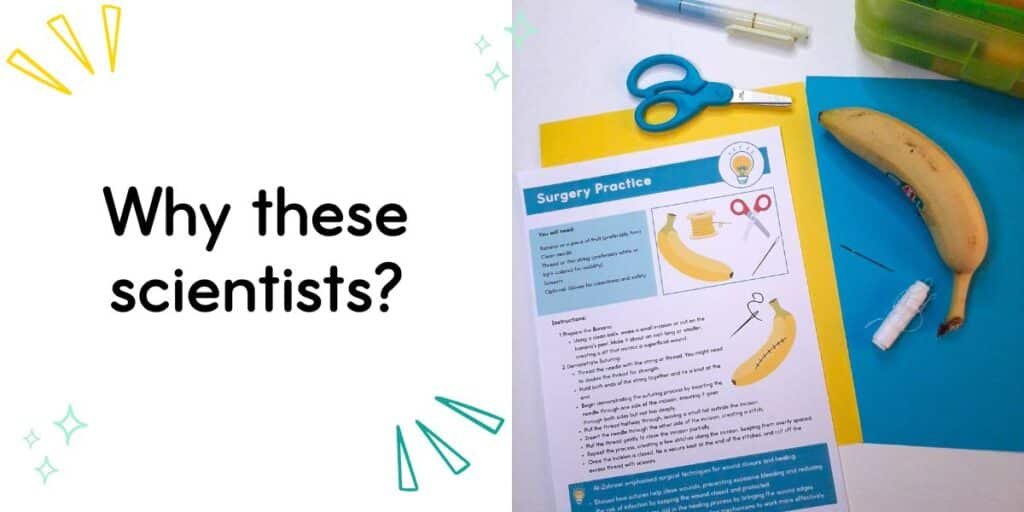
Why these scientists?
There are so many great Muslim scientists from that era to choose from. Before we dive into their lives, I just wanted to outline why I chose these five.
Firstly, they made very significant contributions to science and maths. Their impact can be felt today in inventions such as aeroplanes, glasses and surgical instruments. This makes it easy for children to understand how important their work is.
Secondly, they were from a range of places from Damsucus to Uzbekistan and Iraq. This helps show how widespread the Muslim culture of learning and innovation was.
Finally and most importantly, they were not known for errors in their Islamic beliefs. Many people consider the most famous Muslim scientist of the era to be Ibn Sina. However, he combined the ideas of the Greek philosopher Aristotle and came to some conclusions that directly contradict the beliefs of every Muslim including denying Allah’s attributes and claiming that He only exists as an idea in a person’s mind (May Allah distance us from disbelief). You can read more about that here.
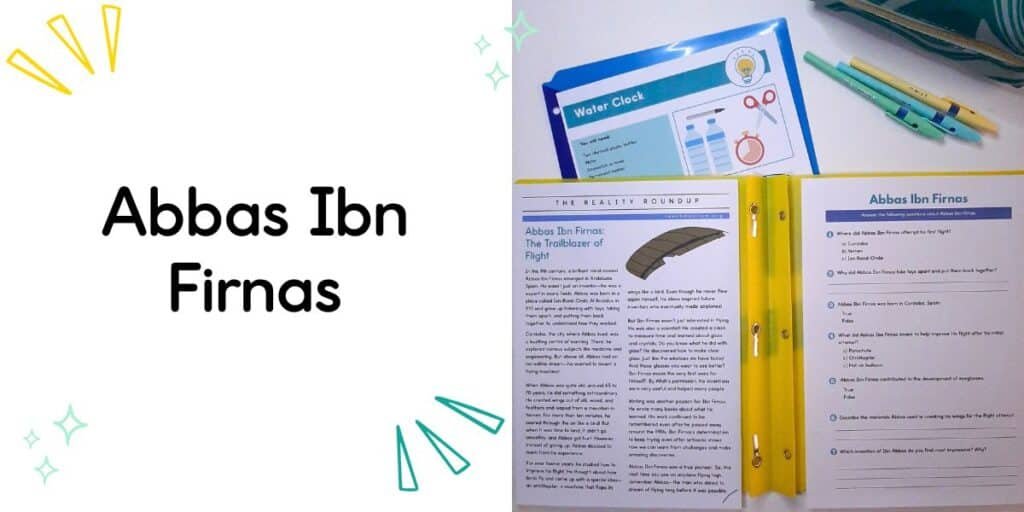
Abbas Ibn Firnas
Abbas Ibn Firnas, born in 810 AD in what is now known as Spain, was a polymath known for his pioneering work in various fields, notably aviation. Often celebrated for his attempt at human flight using a set of wings, Ibn Firnas constructed a glider resembling the mechanics of bird flight. Although his flight wasn’t entirely successful, it marked an early effort in understanding aerodynamics. Beyond aviation, he contributed to astronomy, engineering, and poetry. His bold experiments and innovations in aeronautics laid a foundation for future explorations in flight.
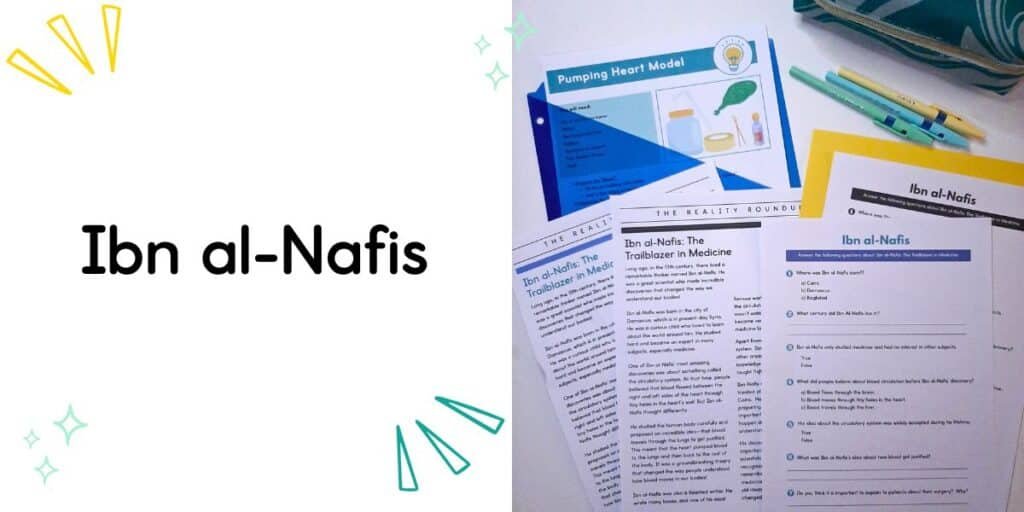
Ibn al-Nafis
Ibn al-Nafis, a polymath from Damascus in the 13th century, made substantial contributions to medicine and physiology. He challenged existing medical theories, notably Galen’s ideas on the circulatory system. Ibn al-Nafis proposed the concept of pulmonary circulation, indicating that blood travelled from the heart to the lungs and back, contrary to prevailing beliefs of the time. His detailed anatomical studies and medical commentaries, particularly on the cardiovascular system, set the stage for advancements in medicine and our understanding of human physiology.
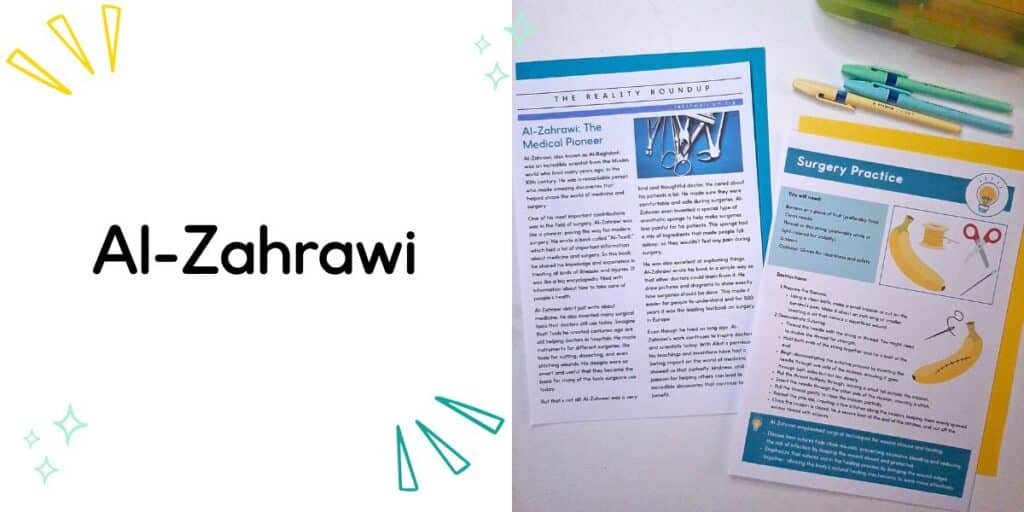
Al-Zahrawi
Al-Zahrawi, hailing from Cordoba, Spain, during the 10th century, is renowned as one of the most significant figures in the history of surgery and medicine. Often referred to as the “Father of Surgery,” his comprehensive medical encyclopedia, the “Al-Tasrif,” became a cornerstone in the field for centuries. This extensive work covered various medical topics, from surgical instruments to treatments, and emphasized practical surgery techniques. Al-Zahrawi’s inventions in surgical instruments and procedures significantly influenced the evolution of surgical practices across the globe.

Al-Khwarizmi
Al-Khwarizmi, who lived during the 9th century in Baghdad, was a mathematician, astronomer, and scholar whose contributions revolutionized mathematics and introduced algebra and algorithmic methods. His foundational work in mathematics, especially in the development of algebra, laid the groundwork for solving complex equations and became a vital tool in various scientific disciplines. Additionally, his texts on the Hindu-Arabic numeral system introduced the decimal positional system, shaping the way mathematics is understood and practiced today.
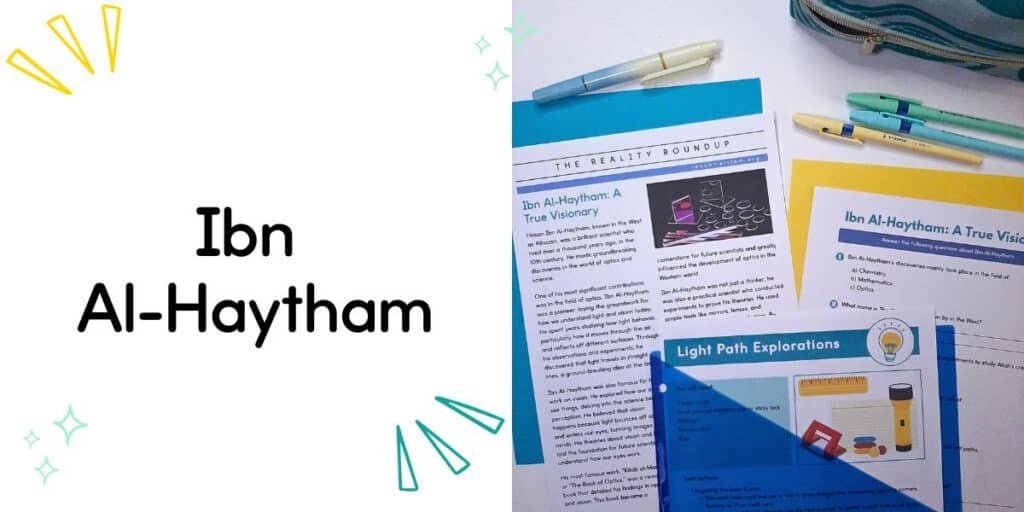
Ibn Al-Haytham
Ibn Al-Haytham, born in Basra (Iraq) during the 10th century, made groundbreaking contributions to optics, physics, and the scientific method. His work on optics, particularly his exploration of light refraction and reflection, significantly influenced later scientific understanding. Ibn Al-Haytham’s seminal book, “Kitab al-Manazir” (Book of Optics), laid the foundations for modern optics and the understanding of vision. Moreover, he developed the scientific method, emphasizing experimentation, observation, and empirical evidence, a methodology integral to modern scientific inquiry.
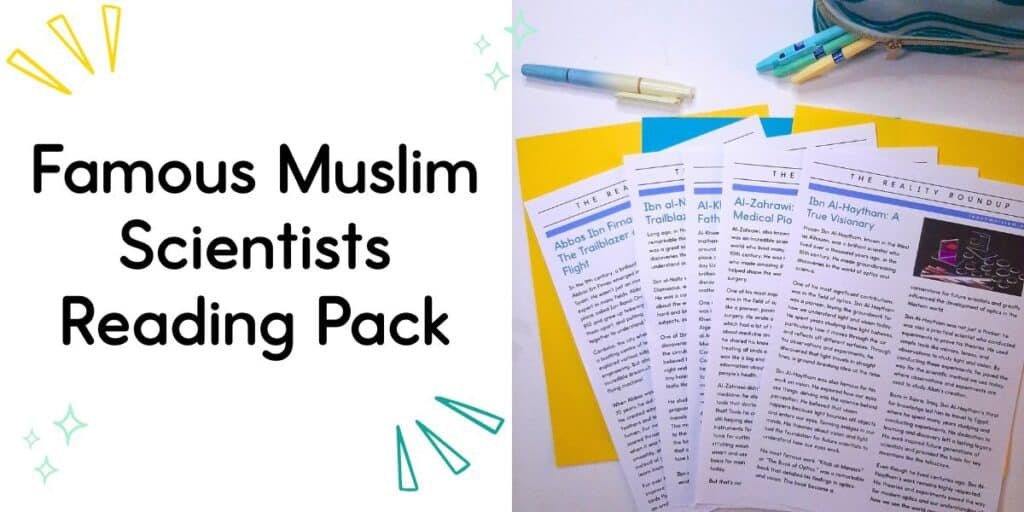
Famous Muslim Scientists Reading Pack
I hope that reading about these influential Muslim scientists inspires you to include them in your child’s education. If you are not sure how to do that or you are short on time, I created a ready-made set of reading passages especially for Muslim kids. There are also hands-on activities included related to the discoveries of each scientist to really engage learners.
What’s included? (View a detailed preview HERE)
✅5 unique reading passages
✅5 accompanying worksheets
✅5 fun activities to bring the discoveries to life
✅Black & white and full colour versions – save ink or splash out
✅Answer sheets – a quick and easy way to review answers
You can purchase the set from the following platforms:
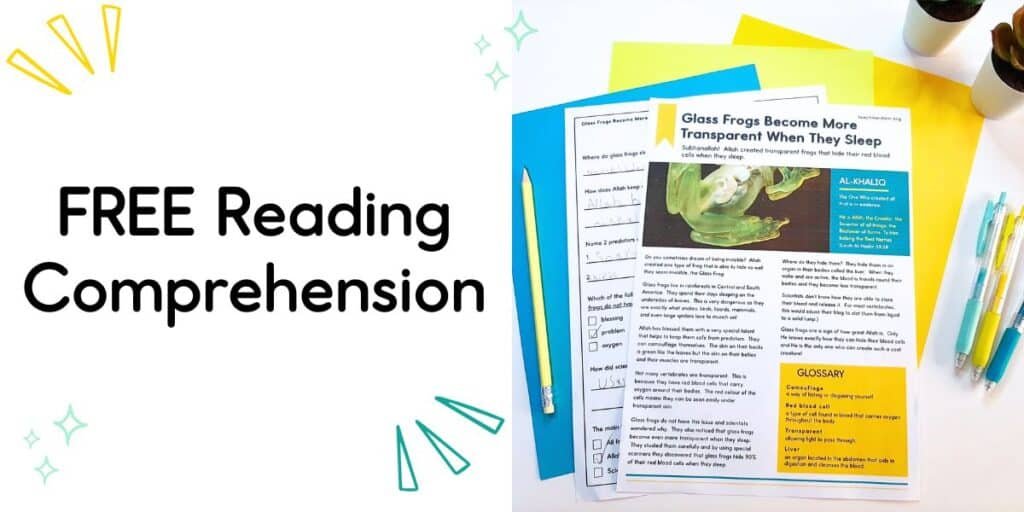
If you would like to get a FREE reading comprehension for kids about Allah’s amazing animal, the glass frog click here. You’ll also gain access to the free resource library full of resources to help teach your kids about Islam.
Here are some other blog posts you may be interested in:
Why you should carefully select non-fiction texts for Muslim kids
How to create Islamic comprehension passages: a step-by-step guide

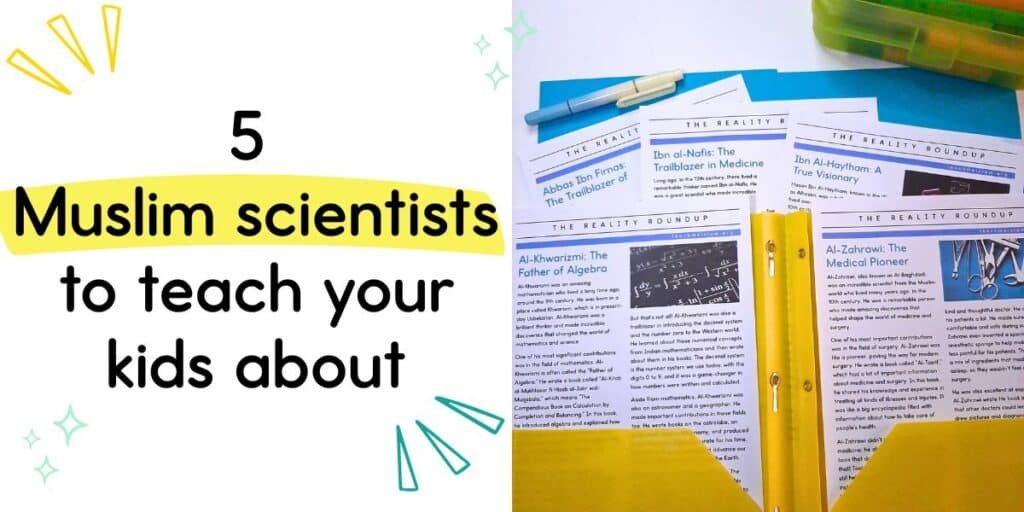



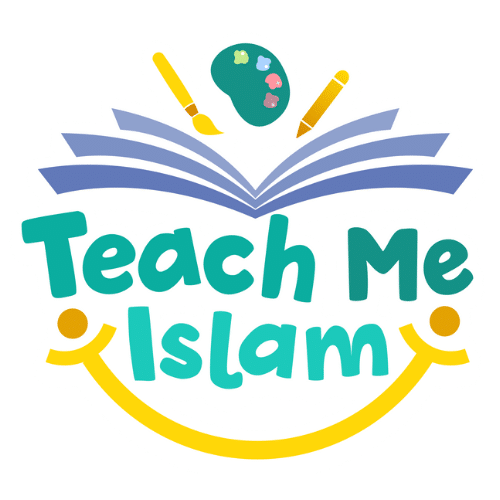
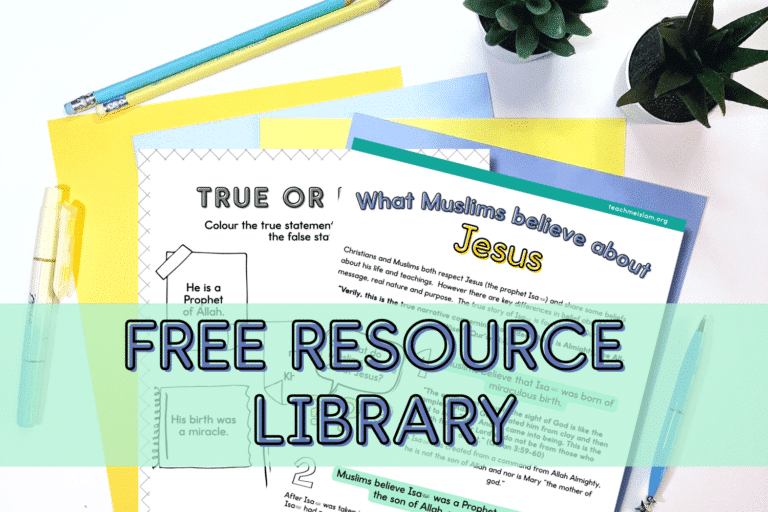
2 Comments
it is really interesting that many people are bubbled up in their culture and can’t understand that other cultures are also really interesting and can create fabulous inventions
I like this post, enjoyed this one thanks for posting .